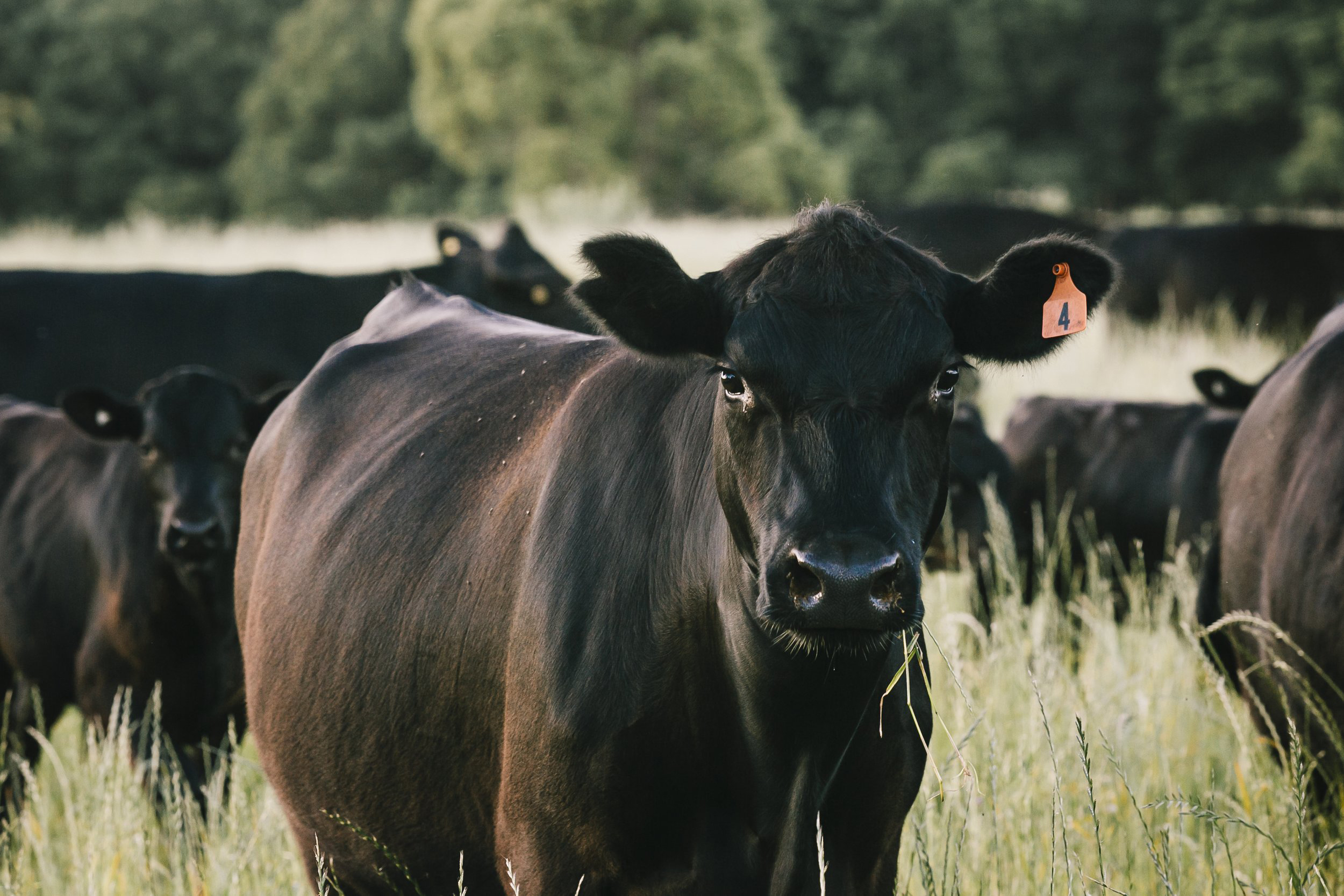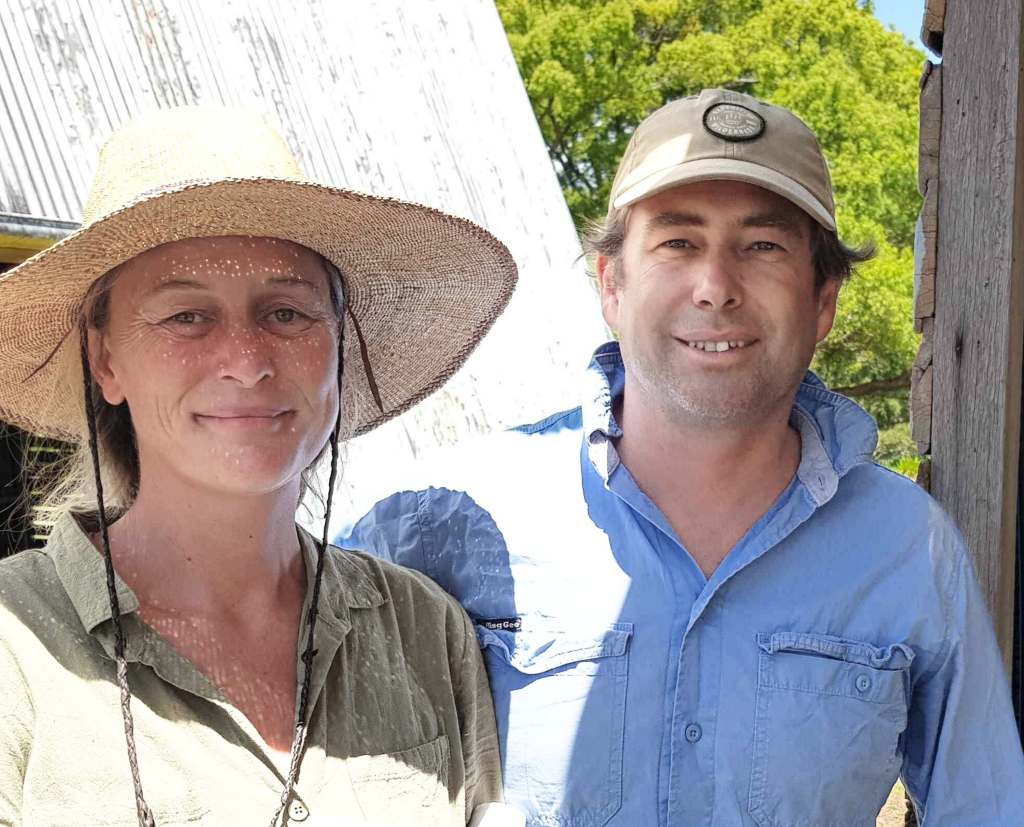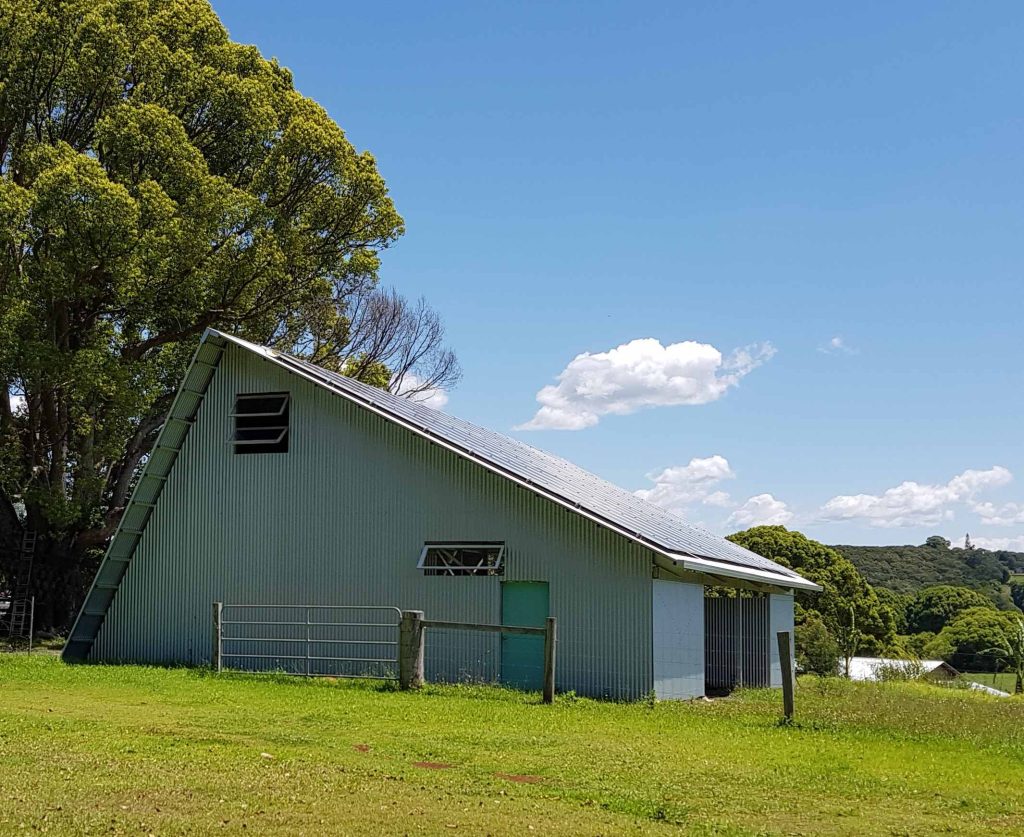
It’s a formidable undertaking to buy a 120-acre farm in a totally new location, and to set out to create an entirely new business venture. What’s needed is tenacity, endurance, and pluck! Christobel Munson investigates.

Photo Christobel Munson
In 2015, Jeanie Wylie and Edward Rawlings moved from Ipswich in Queensland to Nashua, to the west of Bangalow. “We wanted to give farming a go, in a way it could sustain our family for the long-term,” says Jeanie. “As passionate foodies, our dream was to do something we both love.” Both had family connections to farming. Jeanie’s father started Inglewood Organics with his brother, while Edward grew up on an 80-acre cattle and horse farm and, before their move down south, had spent some time breeding rare breed pigs. (The first pig they bought was named Frida – but more of that later.)
The Nashua farm they bought – with Edward’s parents, Andrew and Sandra – had belonged to the Trimble family for 100 years and, most recently, had been used by a neighbour for cattle grazing. Although Edward’s work background had initially been in the finance industry, and Jeanie’s was in marketing and communications, back when they lived in London, both were keen to pursue the farming life. “We’re a good team,” Jeanie says. “I have some crazy ideas while Edward makes sure we think about viability.”
For the first few years, the family took time to get to know the area and the property. Their third child arrived – Arthur, now aged seven, after Evie, who’s nine and 12-year-old Freddie – and while they settled in, they set up an Air BnB cabin on the property. “We always thought we’d do a restaurant, after the kids, and also saw an opportunity on the farming side, to grow food in a sustainable way, andcut out the middle-man, keeping the margins in-house.”
From their early days in Nashua, Edward developed an interest in breeding cattle. They now have a Wagyu beef bull and a herd of about 50 head of Angus heifers, who are managed over their 16 paddocks. “Our primary focus with the cattle is to use them as a tool for regenerating our land, so we keep the herd small and rotationally cell-graze, moving them every few days. This improves the organic matter in our soils and sequesters carbon from the atmosphere.”
While Edward was primarily focused on the cattle, Jeanie was looking to find ways of earning a living from her quarter-acre market garden. There, she grows herbs and vegetables using organic gardening techniques such as composting, mulching, crop rotation, companion planting and making use of natural fertilisers teas. Many of their crops are grown from seed in their small greenhouse.

Photo Christobel Munson
Next, the couple set about creating a forest, growing timber – such as eucalyptus grandis, blue quandong and silky oak – and food and rainforest trees, such as cassava, citrus and bananas. “We’re using techniques that strive to create and mimic the natural processes of a forest by interplanting a diversity of food crops, forest trees, and bio-mass plants which mature at different times. By actively pruning and mulching the plants, we build carbon-sequestering humus and soil fertility at an exponential rate, reducing the need for external inputs and improving the soil’s ability to retain water.” The result? A highly productive food forest. To find out just how to set about these various endeavours, Jeanie participated in Southern Cross University’s practical Regenerative Agriculture Mentoring Program (RAMP).
Finally, three years ago, the couple opened an on-farm restaurant “experience” called Frida’s Field, named after that first Ipswich pig. The restaurant – located in a purpose-built farmshed inspired wooden building – is open three days a week, with a set menu, catering for up to 80 people. The peaceful, easily accessible rural location is also in use as a wedding venue and event space.
Although the COVID years hit their business just as it had started, “things have now settled down and we can do some more forward planning,” Jeanie says. In busy summer months, the restaurant employs between 10 to 15 casual local staff, with three or four in the kitchen. Menus can use 30 to 50 percent of produce grown on the farm, otherwise their Scottish chef Alastair Waddell, sources ingredients direct from growers at the Byron farmers markets. And they do make use of some of the beef reared on site.
Meanwhile, the couple has infiltrated many dimensions of the Nashua community. Late in October, they hosted the annual Nashua Cricket Match on their farm. The popular community event was initially started in 1907 and was resurrected by local families in 2007. It has run every year since, utilising “the oldest concrete cricket pitch in NSW”. There’s a tug-of-war for the kids, and “anyone who likes cricket” comes along for the sausage sizzle or with a picnic to catch-up with local friends.
On 4 November, they will be holding their now sold-out first Spring Gathering at the farm, with live music, teepee making and nature crafts. That day, about 500 trees will be planted along the creek with Richmond Landcare and North Coast Local Land Services – with help from attendees – as part of the Marine Estate Management Strategy to improve riparian vegetation in the region. Further tree planting is planned next year along Wilsons River, with Local Land Services again, and Big Scrub Regeneration.
From 11 November onwards, another new regular summer event will be happening. “If you missed out on the Spring Gathering, we’ll be starting Summer Sundowners every Saturday afternoon. From 3pm, people can pop in, watch the sun setting while enjoying casual snacks and drinks,” Jeanie added. She advises that bookings are encouraged, but spontaneous walk-ins are also welcome.
fridasfield.com
Featured image Kate Holmes